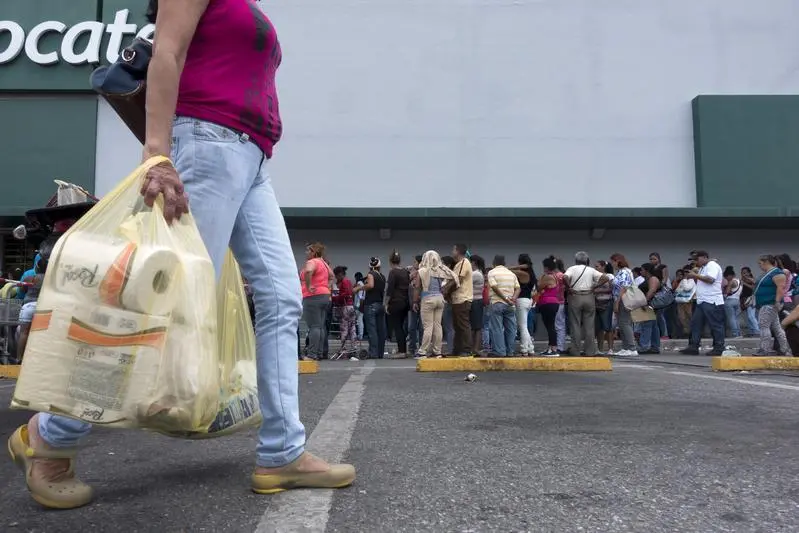PHOTO
Authorities will start regulating the use of single-use plastic bags in Bahrain from Thursday, it has been announced.
However, companies wishing to continue trading in plastic shopping bags, garbage bags and laundry bags are required to apply to the Supreme Council for the Environment (SCE) for a licence, said a statement yesterday.
Council chief executive Dr Mohammed Bin Daina said applications had been received from manufacturers and suppliers and these are currently being studied for their conformity with necessary regulations.
Dr Bin Daina met LuLu Hypermarket director Juzer Rupawala and presented him with the first licence issued by the council to trade in plastic.
The GDN reported on Sunday that an edict issued last month on regulating plastic products in Bahrain was aimed at turning non-biodegradable plastic products into degradable ones in compliance with international standards.
An SCE study found that Bahraini factories can manufacture degradable plastic bags without any changes to their production lines.
It also found that around 47 per cent of local production of plastic bags are degradable – 50pc of which go to supply the local market.
However, following the edict, factories will have to increase their production of degradable plastic bags to 100pc.
Dr Bin Daina also stressed that changing the plastic products from non-biodegradable to biodegradable will come at no extra cost to the end-user.
He clarified that the edict did not prevent the supply of disposable plastic bags to consumers, except for non-biodegradable bags, and didn’t require customers to buy multi-use plastic bags displayed in some markets, adding that providing various types of bags is part of the services offered by shops and markets to consumers.
Under the SCE’s Plastic Products Licensing procedure, the product will be tested by an accredited laboratory and the council will issue a serial number for each product, with the licence valid for a year.
The product will be required to carry the conformity marking and the serial number.
Polyethylene and polyprolelyene sheets, on rolls such as table covers, will also be regulated effective July 25 next year.
Meanwhile, Bahrain Chamber of Commerce and Industry (BCCI) commercial markets committee chairman Abdulhakeem Al Shammari said traders should be allowed a grace period to phase out the single-use plastic bags and replace them with biodegradable ones.
“We support any efforts to protect the environment and by extension the health of the citizens and residents in Bahrain,” he said.
“The plastic waste generated because of the economic and industrial activities are in vast quantities that increase annually – and this decision is aimed at protecting all life forms.
“A grace period will allow the consumption of existing non-biodegradable plastic products in a productive manner as opposed to disposing them of in ways that damage the environment further.
“However, it is crucial to provide a clear date for this process without leaving an open grace period – the maximum period allowed should be three to six months.”
Mr Al Shammari also called for tougher legislation to govern the recycling of plastic products generated by industries as well as plastic wrapping on imported and exported goods which, according to him, constitute a lion’s share of the plastic products. “We also need to look at car bumpers, old computers, electronics and mobile phones which are also thrown away and all contain plastic,” he added.
reem@gdn.com.bh
© Copyright 2019 www.gdnonline.com
Copyright 2019 Al Hilal Publishing and Marketing Group Provided by SyndiGate Media Inc. (Syndigate.info).





















